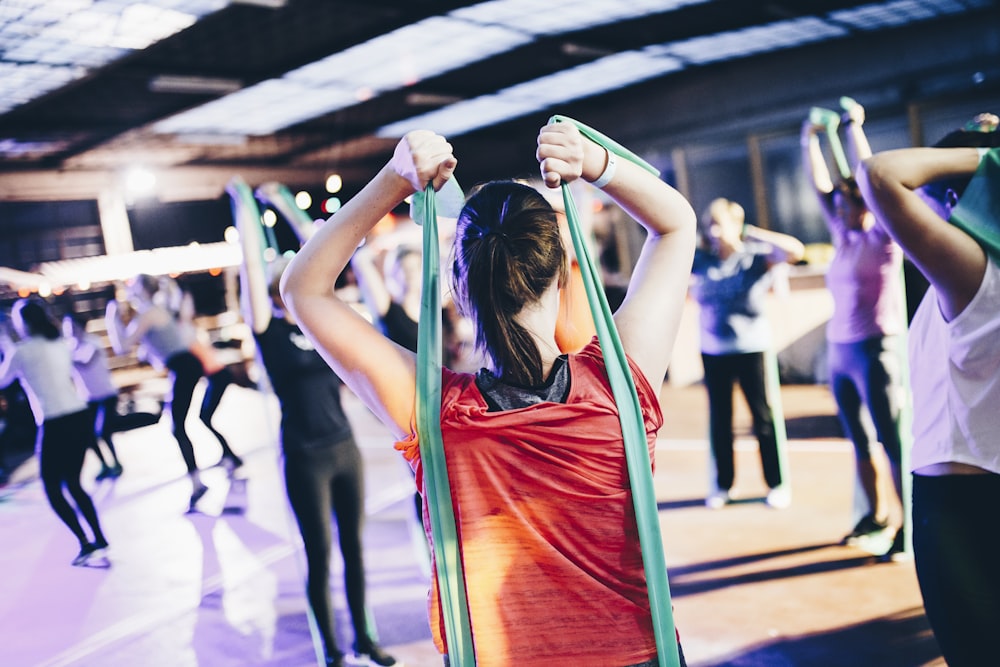
Consult a Specialist
Before delving into any exercise routine, it's paramount to engage with healthcare professionals who specialize in Parkinson's disease, such as neurologists or physical therapists. These experts understand the nuances of the condition and can tailor exercise recommendations to your specific needs, ensuring your safety and maximizing the benefits.
Practice Balance Exercises Regularly
Integrate balance exercises into your daily routine to strengthen your stability. Simple activities like standing on one leg for a count of 20-30 seconds or stepping over low obstacles challenge your balance system and help enhance proprioception, your body's awareness of its position in space.
Engage in Tai Chi
Consider Tai Chi, a graceful and low-impact exercise that combines flowing movements with controlled breathing. Tai Chi has been shown to improve balance, reduce the risk of falls, and enhance overall mobility in Parkinson's patients. Look for classes or videos that cater to individuals with Parkinson's to reap the full benefits.
Consider Yoga
Yoga offers a variety of poses and stretches that can enhance both balance and flexibility. Seek out classes designed specifically for Parkinson's patients, as they often include modifications tailored to varying levels of ability. Yoga practice not only improves physical balance but also promotes mental clarity and relaxation.

A strong core is the foundation of stability. Incorporate core-strengthening exercises into your routine, focusing on seated leg lifts or gentle abdominal exercises. A physical therapist from a specialized center like FYZICAL Therapy & Balance Centers can provide guidance on selecting exercises that cater to your capabilities and needs.
Use Assistive Devices Safely
Assistive devices like canes or walkers can provide valuable support while walking. However, it's essential to ensure that these devices are properly fitted and recommended by your healthcare provider. Improper use of assistive devices can lead to dependency and potentially compromise your mobility.
Focus on Posture
Maintaining proper posture is crucial for balance and fall prevention. Stand tall with your shoulders back and your head aligned with your spine. Avoid slouching or leaning excessively to one side, as these habits can throw off your balance.
Manage Medications
Collaborate closely with your healthcare provider to manage your Parkinson's medications. Fluctuations in medication levels can impact your balance and mobility. Timed dosing that coincides with physical activity can optimize your movement and overall functionality.
Practice Deep Breathing
Deep breathing exercises can help you relax and reduce muscle tension. Incorporating slow, deep breaths into your daily routine promotes a sense of calm and enhances your overall balance by reducing stress and anxiety.
Stay Hydrated and Well-Nourished
Dehydration and poor nutrition can adversely affect energy levels and overall well-being. Adequate hydration and balanced nutrition are crucial for supporting your body's functioning. Ensure you're drinking plenty of water and consuming nutrient-rich foods to maintain optimal health.
Mindful Walking
Be present and attentive while walking. Take deliberate steps, focusing on lifting your feet fully off the ground. This mindful approach can help prevent shuffling, a common challenge for Parkinson's patients. Maintain an awareness of your movements to improve your overall gait and balance.
Stay Positive and Patient
The journey toward improved balance takes time and perseverance. Maintain a positive mindset and practice patience as you work through exercises and strategies. Celebrate even the smallest milestones, and remember that each step you take towards enhancing your balance is a significant achievement.
FYZICAL Therapy & Balance Centers: A Source of Expertise
For individuals seeking specialized guidance in balance improvement, FYZICAL Therapy & Balance Centers offer a unique solution. Their dedicated focus on balance exercises, utilizing the FYZICAL Balance Paradigm developed with NASA-based force plates, ensures a comprehensive approach to addressing balance and dizziness deficits. As the ONLY therapy clinic in the area utilizing this conceptualized framework, their mission aligns with improving the lives of those at risk of falls and balance insufficiencies.
Through personalized assessments, tailored exercises, and innovative tools such as the Safety Overhead Support (SOS) System, FYZICAL empowers Parkinson's patients to master their balance challenges. With their guidance, you can work toward a more stable and confident future, enhancing your overall quality of life and maintaining your independence.
Conclusion
Balancing challenges associated with Parkinson's disease can be met with a multifaceted approach. By engaging in specialized exercises, working with expert healthcare providers, and seeking guidance from centers like FYZICAL Therapy & Balance Centers, you can enhance your stability, mitigate fall risks, and enjoy a higher quality of life. With dedication and support, you can regain confidence in your movements, fostering an active and fulfilling lifestyle.
